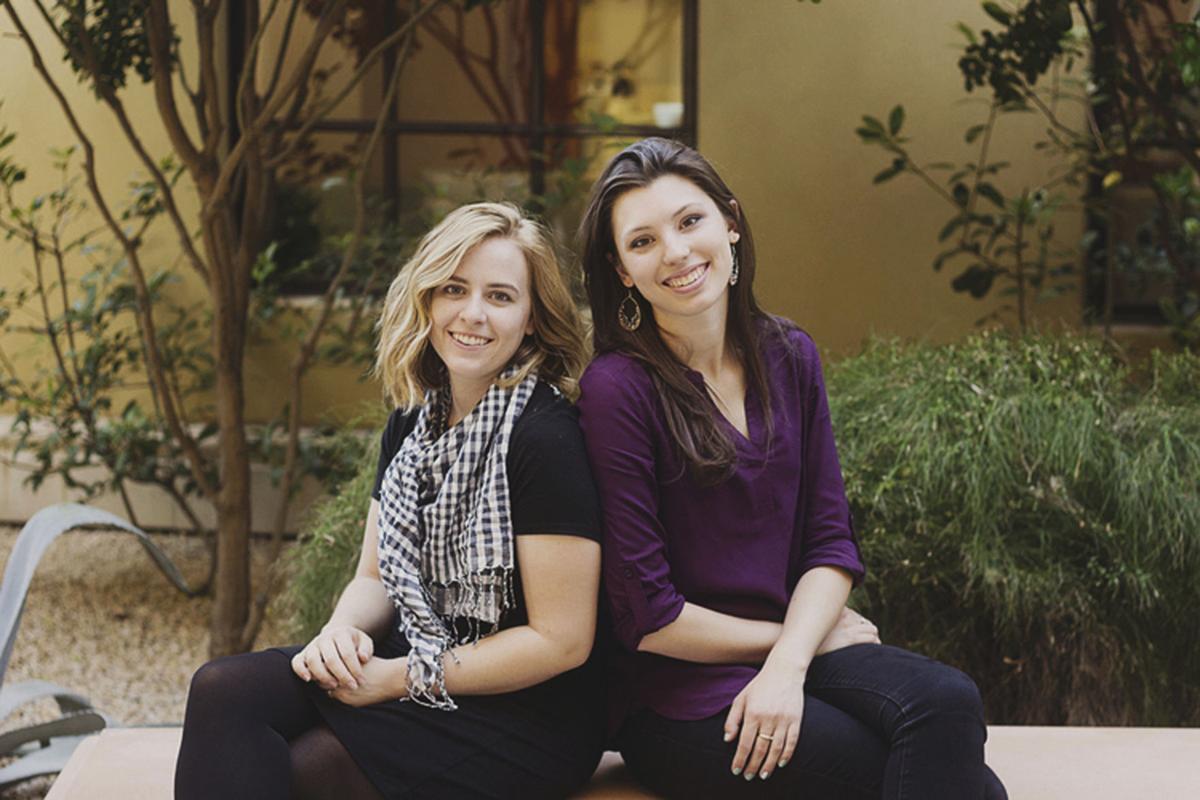The state Court of Appeals has rejected arguments by owners of a Phoenix business that a city ordinance that bars them from refusing to design wedding invitations for same-sex couples violates their constitutional and religious rights.
In a unanimous ruling Thursday, the judges acknowledged that Joanna Duka and Breanna Koski, the owners of Brush & Nib Studio, are "devout Christians" who believe that the only legitimate marriage is between one man and one woman.
As a result, they do not want to be forced to prepare wedding invitations for same-sex couples, arguing that doing so would force them to espouse beliefs that are contrary to their sincerely held religious beliefs. And they wanted the ability to post a sign to that effect.
But appellate Judge Lawrence Winthrop, writing for the court, rebuffed their claim that this was about free speech. Instead, he said, this is simply about conduct.
"While such a requirement may impact speech, such as prohibiting places of public accommodation from posting signs that discriminate against customers, this impact is incidental to properly regulated conduct," the judge wrote.
"Simply stated, if appellants, as an economic entity, want to operate their for-profit business as a public accommodation, they cannot discriminate against potential patrons based on sexual orientation," Winthrop said.
The judges also rejected their claims that the ordinance substantially burdens their religious beliefs.
"Appellants are not penalized for expressing their belief that their religion only recognizes the marriage of opposite-sex couples," Winthrop said. And he said they can refuse to create wedding-related merchandise for same-sex couples as long as they refuse to provide the same service for opposite-sex couples.
"What appellants cannot do is use their religion as a shield to discriminate against potential customers," he said.
Winthrop said, however, nothing in Thursday's ruling forces the women to endorse same-sex marriages — or even to keep silent about their views.
"Although appellants are prohibited from posting discriminatory statements about their intent to refuse services for same-sex weddings, they may post a statement endorsing their belief that marriage is between a man and a woman," the judge said. "Or they may post a disclaimer that the act of selling their goods and services to same-sex couples does not constitute an endorsement of their customers' exercise of their constitutional right to marry or any other activities."
Winthrop cited a long line of federal court rulings from across the country which have upheld laws barring places of "public accommodation" — which includes commercial businesses open to the public — from refusing services based on whether the client is gay.
"In light of these cases and consistent with the United States Supreme Court's decisions, we recognize that allowing appellants to refuse service to customers based on sexual orientation would constitute grave and continuing harm," Winthrop wrote.
As it turns out, though, one of the federal appellate court rulings cited by Winthrop in Thursday's ruling involves a Colorado baker who refused to create a wedding cake for a gay couple. The baker in that case, like the women here, said doing so would violate his "sincerely held religious beliefs."
On Tuesday, however, the U.S. Supreme Court overturned that Colorado ruling, siding with the baker.
But the Arizona judges, in writing Thursday's ruling in the Brush & Nib case, noted that they were aware of what the nation's high court had decided two days earlier.
Jonathan Scruggs, attorney for Alliance Defending Freedom which represents the women has vowed to seek review by the Arizona Supreme Court.
"Artists shouldn't be forced under the threat of fines and jail time to create artwork contrary to their core convictions," he said in a prepared statement. He cited language from Tuesday's U.S. Supreme Court ruling which said that religious and philosophical objections to gay marriage "are protected views and in some instances protected forms of expression."
Whatever the Arizona Supreme Court decides, should it take up the case, would affect the validity of similar anti-discrimination ordinances in Tempe, Tucson and Flagstaff.
At the heart of the couple's argument is their right to free speech, particularly as it relates to "customer -directed projects" where the invitations are prepared in consultation with the people that want the designs. They said being required to create customer-specific merchandise for same-sex weddings will violate their religious beliefs and asked that the city be blocked from enforcing the ordinance.
Attorneys for the women argued that the Phoenix ordinance violates their constitutional rights, essentially forcing them to "speak in favor of same-sex marriages." The judges disagreed.
"Although (the Phoenix ordinance) may have an incidental impact on speech, it's main purpose is to prohibit discrimination," Winthrop wrote. That, he said, means the law "regulates conduct, not speech."
Winthrop also expressly rejected the claim that they were entitled to constitutional protections for "expressive conduct," saying the items that the women would produce "would likely be indistinguishable to the public" based on who was getting married.
"Take for instance an invitation for the marriage of Pat and Pat (whether created for Patrick and Patrick, or Patrick and Patricia)," Winthrop wrote.
"The invitation would not differ in creative expression," he continued. "Further, it is unlikely that a general observer would attribute a company's product or offer of services, in compliance with the law, as indicative of the company's speech or personal beliefs."





